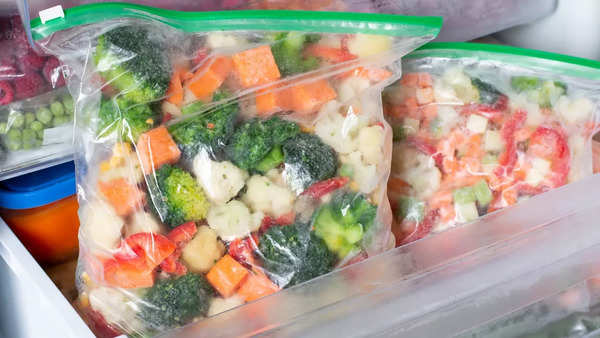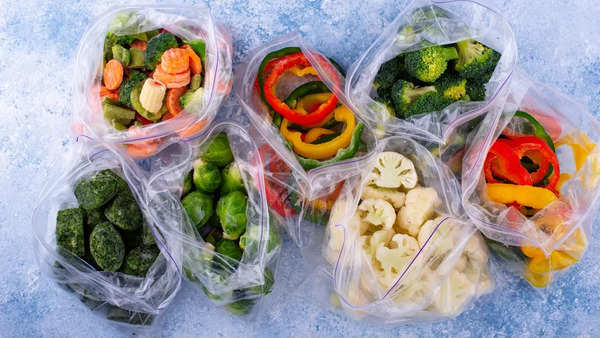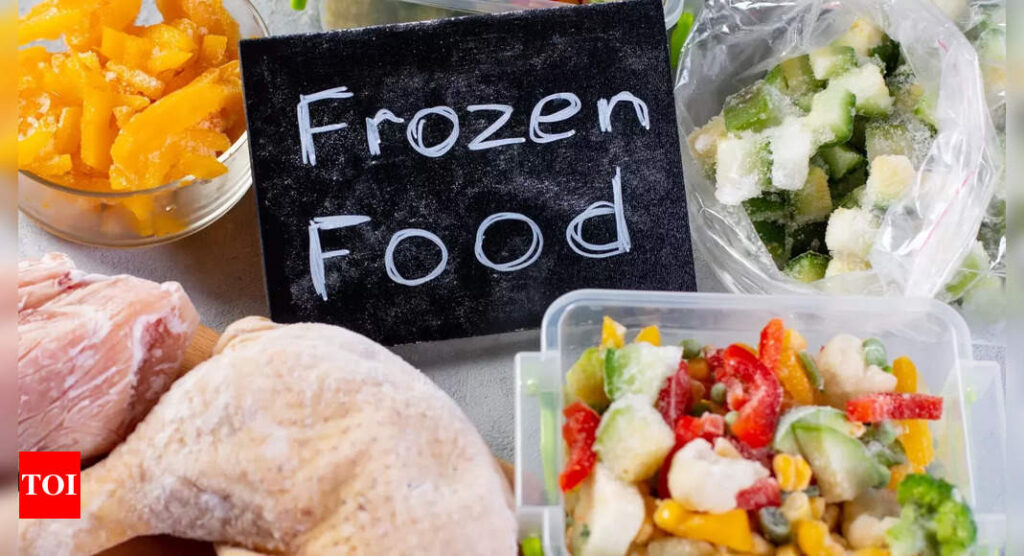Busy schedules and convenience have given a green signal to frozen foods for being a staple food in modern households as they have a long shelf life and are easy to prepare. However, despite their benefits, there are several side effects associated with consuming frozen foods that are worth considering. Here’s all you need to know about the ill effects of frozen foods that you must be aware of.Read more…
Nutrient loss
One of the primary concerns with frozen foods is the potential loss of nutrients. Although freezing can preserve vitamins and minerals to some extent, the process of blanching (a brief heat treatment before freezing) can cause significant nutrient loss, especially in water-soluble vitamins like vitamins C and B. Over time, even frozen foods stored at the right temperature can experience nutrient degradation, making them less nutritious compared to their fresh counterparts.
ALSO READ: Is frozen food not as unhealthy as it is believed to be?
High sodium content
Frozen meals and snacks often contain high levels of sodium, which is used as a preservative and flavour enhancer. Consuming too much sodium can lead to health issues such as high blood pressure, heart disease, and stroke. The American Heart Association recommends limiting sodium intake to 2,300 milligrams per day, but many frozen foods contain close to or exceed this amount in a single serving. Regular consumption of high-sodium frozen foods can, therefore pose serious health risks.
Artificial additives and preservatives
To enhance flavour, colour, and shelf life, many frozen foods contain artificial additives and preservatives. These chemicals, such as monosodium glutamate (MSG), artificial colours, and synthetic flavourings, can have adverse effects on health. For example, some people may experience allergic reactions, headaches, or other symptoms due to these additives. Additionally, long-term consumption of foods with artificial additives has been linked to various health concerns, including hyperactivity in children and increased cancer risk.
ALSO READ: 8 Healthy Frozen Foods You Must Try
Trans fats and unhealthy fats
Frozen convenience foods, such as pizzas, pies, and pastries, often contain trans fats and unhealthy saturated fats. Trans fats, which are created during the hydrogenation process to increase shelf life, are particularly harmful as they raise bad cholesterol (LDL) levels and lower good cholesterol (HDL) levels. This increases the risk of heart disease, stroke, and type 2 diabetes. Although some countries have regulations limiting trans fats, many frozen foods still contain significant amounts of unhealthy fats.
Risk of foodborne illnesses
While freezing does halt the growth of most bacteria, it does not kill all pathogens. Improper handling, thawing, or refreezing of frozen foods can lead to the growth of harmful bacteria such as Salmonella and Listeria. These bacteria can cause foodborne illnesses, leading to symptoms like nausea, vomiting, diarrhoea, and, in severe cases, hospitalization. It is essential to follow proper storage and cooking instructions to minimise the risk of foodborne illnesses.
ALSO READ: Why you must be careful while choosing frozen Foods?
Increased caloric intake
Frozen foods, particularly pre-packaged meals and snacks, can be calorie-dense due to added fats, sugars, and starches. Regular consumption of these high-calorie foods can contribute to weight gain and obesity, especially when paired with a sedentary lifestyle. Obesity is a significant risk factor for numerous health conditions, including heart disease, type 2 diabetes, and certain cancers. To maintain a healthy weight, it is crucial to be mindful of portion sizes and choose frozen foods with lower calorie content.
Negative environmental impact
The production, packaging, and transportation of frozen foods can have a considerable environmental impact. The energy required to freeze and store these foods contributes to greenhouse gas emissions, while the packaging often involves single-use plastics that end up in landfills. Additionally, the transportation of frozen foods over long distances increases the carbon footprint. Opting for locally sourced fresh produce and minimising the use of frozen foods can help reduce this environmental impact.
While frozen foods offer undeniable convenience and can be a part of a balanced diet, it is essential to be aware of their potential side effects. Nutrient loss, high sodium content, artificial additives, unhealthy fats, risk of foodborne illnesses, increased caloric intake, and environmental impact are significant concerns associated with the regular consumption of frozen foods. By making informed choices and opting for fresh, whole foods whenever possible, you can enjoy a healthier diet and minimise the risks associated with frozen foods.
(Images courtesy: Canva)
Subscribe to Updates
Subscribe to our newsletter and never miss our latest news
Subscribe my Newsletter for New Posts & tips Let's stay updated!

